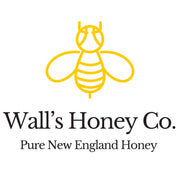What is bee pollen? Thanks for asking! Bee pollen is commonly a mixture of flower pollen, nectar and the digestive enzymes from the bees that collect it. Bees fly from flower to flower, and roll in the pollen, coating the fine hairs on their legs and then returning back to the hive where the pollen is stored to use as food for the bees. Bee pollen consists of simple sugars, protein, minerals, vitamins and fatty acids. The bees store the pollen in the brood cells (baby bee cells) and mix it with bee saliva and seal it with honey.
The use of bee pollen as a traditional medicine has been recorded for thousands of years. The first recorded use of bee pollen in medicine was in China during the Tang Dynasty and was used to help patients recover from recent sickness, restore energy and to promote overall good health. Some herbalists think of bee pollen as an ancient superfood! It is important to note that there has been no scientifically proven link between bee pollen and health benefits in modern times.
Today, bee pollen can be taken in a pill format or sprinkled raw onto foods such as porridge, yoghurt, cereal, soups or in smoothies. It has a sweet taste that is specific to the flower(s) that the bee foraged on when collecting it. There are risks of humans consuming bee pollen and these may include fungal, pesticide or toxic metal contamination. Consumption can result in shortness of breath, rash, swelling and anaphylaxis. It is not considered safe for pregnant or breastfeeding women. Wall’s Honey Co do not harvest or sell bee pollen and highly recommend speaking to a health care professional before consuming.

